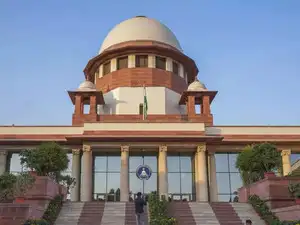Supreme Court rules no official can hold on to government accommodation after quitting office

New Delhi, July 23, 2025 :
In a stern ruling on misuse of government resources, the Supreme Court dismissed a former Bihar MLA’s plea. He had challenged a ₹21 lakh penalty for staying in a government bungalow for over two years after leaving office. The bench said no one can keep official residences indefinitely even if reappointed in another role.
The petitioner, Awadhesh Kumar Singh, was an MLA but stepped down from office in 2014. Despite that, he stayed in a government bungalow in Patna until May 2016. He later joined the State Legislature Research and Training Bureau—a non-elected post—and claimed it allowed him to keep the residence.The court found this argument untenable.
A bench of Chief Justice D.Y. Chandrachud, Justice B.R. Gavai, and Justice K.V. Viswanathan affirmed the decision of the Patna High Court, which had previously upheld the ₹21 lakh penalty imposed on Singh for unauthorized occupation. The bench said that legislative perks cannot be carried over into non-legislative positions.
Singh’s counsel argued that his role in the research bureau, established by a 2009 notification, entitled him to MLA-level facilities, including accommodation. However, the bench rejected this assertion outright. “Once you resigned as a legislator, you should have vacated the stipulated bungalow. No one can hold on to a government house indefinitely,” the bench observed.
The Supreme Court underlined the principle that public resources such as government housing are limited and must be used judiciously. Allowing former legislators or officials to occupy such accommodation without formal entitlement not only breaches administrative norms but also deprives eligible officeholders of their due facilities.
The court’s decision reaffirms earlier rulings, including those in the Lok Prahari and S.D. Bandi cases, where it had strongly cautioned against the unauthorized occupation of public premises. These precedents had made it clear that misuse of official accommodations constitutes a violation of law and must attract strict penalties.
The bench noted that Singh’s attempt to justify the overstay by citing internal departmental appointments cannot override the principle of equal access to government property. It reiterated that personal status or prior positions do not grant perpetual rights to state-sponsored housing.
Legal experts hailed the verdict as a necessary step to curb entitlement culture among former lawmakers. “This ruling reinforces that taxpayer-funded resources are not personal privileges. Judicial backing is essential to prevent systemic misuse,” said constitutional law expert Rajiv Dhawan.
The ruling is expected to have wide implications, especially in states where many former MLAs and MPs continue to enjoy unauthorized access to state assets. It also reinforces the accountability of government departments in ensuring timely eviction and recovery of dues from illegal occupants.
Source
